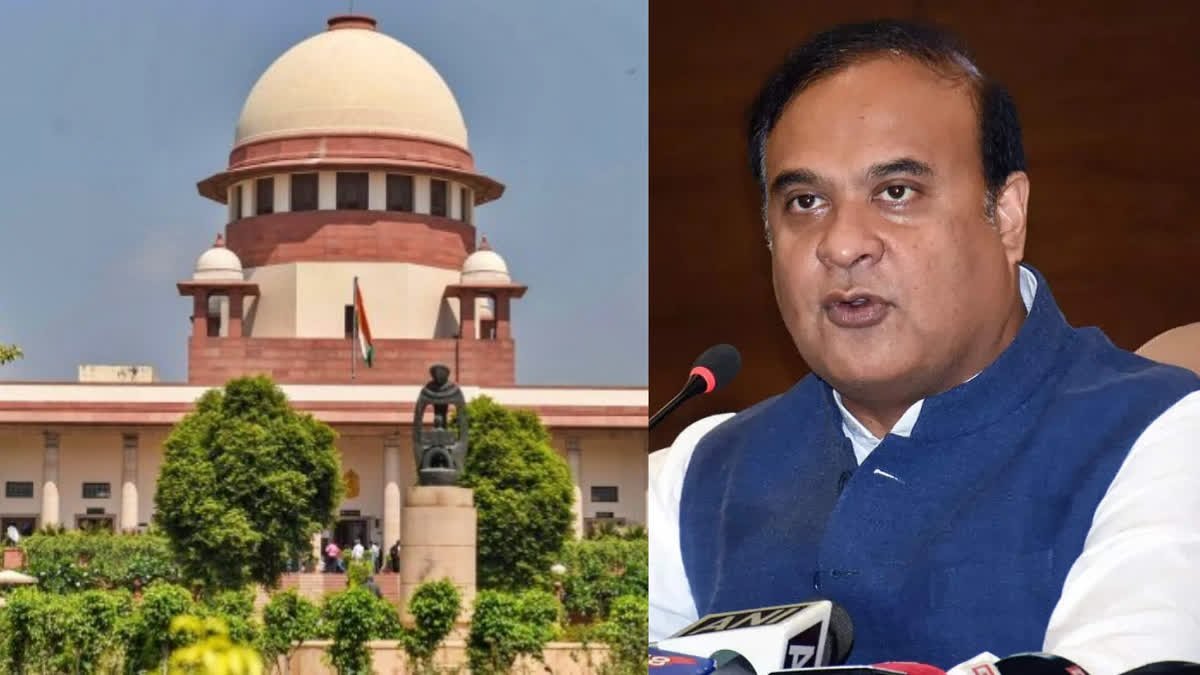HT Digital
Friday, October 4: The Assam government has recently presented its stance before the Supreme Court, defending its police force against allegations of carrying out extrajudicial or “fake” encounters. In an affidavit filed in response to the case of Arif Yeasin Jwadder vs State of Assam and Others, the government clarified that the actions of the police were in line with legal protocols and were primarily carried out in self-defense. The case centers on accusations that Assam’s police personnel were involved in orchestrating unlawful killings under the guise of legitimate encounters.
In its defense, the Assam government highlighted that over the last ten years, only 10% of criminals who attempted to flee during police operations were injured, and these injuries occurred in situations where police officers were compelled to protect themselves. The affidavit emphasized that the state’s police force had no intention of using excessive force and that any harm inflicted was in the course of apprehending dangerous criminals or responding to imminent threats.
According to the state’s submission, the police actions were carefully evaluated and followed legal norms. It stressed that the notion of “fake encounters” was unsubstantiated and that the police had acted lawfully under the framework of self-defense. In Assam, law enforcement officers are often faced with challenging situations where criminals, who are frequently armed and dangerous, try to evade capture. In these cases, police personnel are trained to respond with appropriate force, keeping their own safety in mind, as well as that of the public.
The government also highlighted that the narrative of fake encounters has not been supported by concrete evidence. It pointed out that most police operations are meticulously planned and monitored, ensuring that they adhere to the legal requirements for the use of force. Further, the state government underscored the accountability measures in place, which include internal reviews of police actions, inquiries into the circumstances leading to injuries or deaths, and ensuring adherence to standard operating procedures.
This case brought to light a growing concern regarding the conduct of police forces in Assam, a state that has witnessed an increase in criminal activities in recent years. Encounters between law enforcement and criminals have occasionally resulted in fatal outcomes, prompting human rights advocates and legal experts to raise questions about the legitimacy of these operations. The petition filed by activist Arif Yeasin Jwadder called for a thorough investigation into these encounters, accusing the police of using force indiscriminately and bypassing judicial processes.
However, the state government firmly defended its position, noting that the police were dealing with hostile environments where criminals often resisted arrest or tried to flee. The affidavit further pointed out that in instances where lethal force had to be used, it was only when absolutely necessary to neutralize threats posed by armed criminals. In such situations, the primary aim of the police was to apprehend suspects, not to cause harm.
Additionally, the Assam government reiterated that self-defense remains a legitimate defense in the use of force by police officers. Under Indian law, self-defense is recognized as a valid legal justification for actions that might otherwise be deemed unlawful. This principle allows law enforcement personnel to protect themselves and others when confronted with immediate danger, especially in high-stakes operations involving armed criminals.
Over the years, the Assam Police has been involved in multiple high-risk operations targeting criminal networks, insurgents, and organized crime syndicates. The affidavit submitted by the state to the Supreme Court noted that the police had made concerted efforts to minimize harm during these operations, ensuring that the use of force was proportionate and justified. It also cited specific instances where criminals, after being cornered, opened fire on the police, leaving officers with no choice but to respond with force.
The state government has urged the Supreme Court to recognize the difficult and dangerous situations police officers often find themselves in, which necessitate swift and decisive action. The government argued that portraying these encounters as extrajudicial killings overlooks the complexities of law enforcement in a state like Assam, where armed criminals pose a constant threat.
The Assam government’s defense is expected to be a critical aspect of the ongoing legal battle, as the Supreme Court continues to examine the validity of the claims raised in the petition. This case has sparked widespread debate on the balance between maintaining law and order and upholding human rights. While critics of the police force have called for greater transparency and accountability, the state remains steadfast in its assertion that the actions of its officers are justified when viewed in the context of protecting public safety and enforcing the law.
As this case unfolds, it may have broader implications for how police encounters are perceived and dealt with across the country. For now, the Assam government’s affidavit sets the stage for a robust defense of the state’s police force, arguing that self-defense and legal protocols were strictly followed in the encounters under scrutiny.







